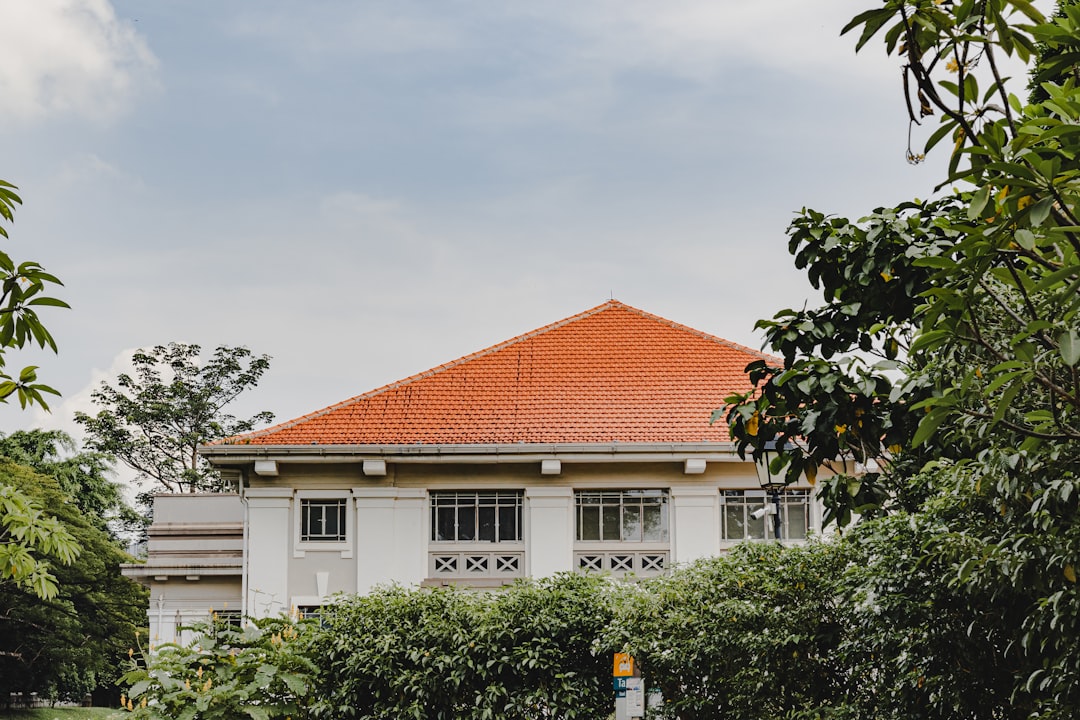 Photo from Unsplash
Photo from Unsplash
Originally Posted On: https://cmcroofinginc.com/choosing-roofing-material-for-your-commercial-building-in-cleveland/
Choosing the Right Roofing Material for Your Commercial Building in Cleveland
When it comes to roofing a commercial building in Cleveland, careful consideration needs to be made. Your roof complements the overall look of the structure and how functional it is against weather conditions. The best roofing material for your commercial building depends on your budget, the building’s structure, and local climate conditions.
For people living in Cleveland, the weather can lead to many issues concerning their roofing. The material which you will choose should be able to bear the pressure of hot summer months, freezing cold winter months, and torrential rains and snow too. Metal, rubber, and built-up roofing are all good options.
The type of roof is very key to the operations of any business. In most cases, it is a good idea to research all materials available on the market prior to making the decision on your roofing system. In that way, you will be able to make the best choice that will last with fewer expenses in the long run. Try to avoid ignoring how it looks—since your roofing is probably the most striking unique aesthetic appeal of the building.
Key Takeaways
- Pick roofing that is affordable for you and suited for the weather in Cleveland
- Looks into important factors such as durability, energy efficiency, and aesthetics
- Work with a professional roofer with years of experience for proper installation and maintenance of your commercial roof
Understanding Commercial Roofing Materials
Commercial roofing materials come in many types. Each has its own advantages and disadvantages. Your choice will depend on your building’s roofing needs of the building and your budget.
Asphalt and Metal Roofing Options
Asphalt shingles are a common choice for commercial roofs. They are inexpensive and easy to install. But they don’t last as long as other options.
Metal roofing is tough and lasts long. It comes in many styles and colors and is available in steel, aluminum, or copper. Metal roofs reflect heat, which can lower your energy costs.
Both options work well in Cleveland’s climate.
Asphalt shingles can handle snow and rain. Metal roofs shed snow easily and resist wind damage.
Sustainable and Specialized Choices
An option that is gaining ground in modern days is green roofs. They’re covered with plants. This helps absorb the rainwater and also aids in limiting the temperature of the building.
Solar roofs are another green choice. They turn your roof into a power-producing station. You can save money on energy bills over time.
Both these options require a bit of maintenance. But they help define your structure. They also demonstrate that you are environmentally friendly.
The Case for Wood, Tile, and Slate
Wood shingles give a natural look. They work well on some commercial buildings. But they need more care than other materials.
Tile roofing is pretty and lasts a long time. It comes in many colors and styles. Tile is heavy, so your building needs to be strong enough to support it.
Slate roofs are the most durable. They can last over 100 years. Slate is also very heavy and expensive. But it looks great and needs little care once installed.
These materials are less common for commercial use. But they can be the best option for certain buildings. Think about your budget and building style when choosing.
Considerations for Roof Selection
Picking the right roof for your commercial building in Cleveland involves several key factors. Your choice will impact energy efficiency, durability, and compliance with local regulations.
Cleveland’s Climate and Weather Impact
Cleveland’s weather can be tough on your roof. Hot summers, cold winters, and tons of rain and snow can take their toll. It is important to choose materials that can handle these conditions.
Metal roofs are great for shedding snow. They last long and resist damage from freezing and thawing.
Rubber roofs (EPDM) work well in cold climates. They flex without cracking when temperatures change.
Built-up roofs with gravel tops stand up to UV rays in summer. They also provide good insulation year-round.
Whatever you pick, make sure it has proper drainage to avoid water pooling.
Building Architecture and Roof Slope
A building’s shape and its roof pitch affect your roofing options.
Flat roofs are common in commercial buildings. They work well with built-up roofing, single-ply membranes, or modified bitumen.
Low-slope roofs (slightly angled) can use similar materials to flat roofs. They may also support metal panels or rubber rolls.
Steep-slope roofs allow for more visible options like shingles or tiles. These materials shed water and snow easily.
Match your roof to your building’s style. A modern office might look best with a sleek metal roof. An older brick building could suit clay tiles.
Compliance With Building Codes
Cleveland has specific rules for commercial roofs. You must follow these to pass inspections and avoid fines.
Check the local building code for:
- Fire resistance ratings
- Wind uplift resistance
- Insulation requirements
- Roof access and safety features
Some areas may have extra rules for historic districts or green building standards.
Work with a licensed and reputable contractor who knows Cleveland’s codes. They can help you choose a roof that meets all legal requirements and help you make an informed choice.
Remember, cutting corners on code compliance can lead to potential issues later. It’s worth doing right the first time and will increase your peace of mind.
Roofing Installation and Maintenance
Proper installation and upkeep are key to a long-lasting commercial roof. This will help protect your building and save money over time.
Selecting the Right Roofing Contractor
Choose a reputable contractor for your new roof or roof replacement. Look for a professional roofing company with experience. Check if they’re members of the National Roofing Contractors Association.
Ask for references, look at customer reviews, and review their work. Make sure they’re licensed and insured. Get detailed quotes from several contractors before deciding who to go with.
A good contractor will follow the best practices for roof installation. They’ll use quality materials and proper techniques. This helps avoid future problems and extends the life of your roof.
The Importance of Regular Maintenance
Regular roof maintenance is the best way to keep things from escalating into bigger problems. Have a schedule for checking the roof, it should be at least semi-annually. When you perform your inspections, examine the roof for areas of wear. Maintain the cleanliness of gutters and make sure drains are not clogged. This will prevent water from pooling. Fast-growing tree branches that scratch your roof should also be trimmed.
Address any necessary repairs right away. Small fixes can prevent costly roof replacement later. Keep records of all maintenance. Professional inspections can spot problems you might miss. They can also give you a clear picture of your roof’s overall health. This helps you plan for future repairs or replacements.
Frequently Asked Questions
Commercial building owners face many decisions when selecting roofing materials. The right choice depends on several key factors unique to each commercial property and location.
What factors influence the choice of roofing materials for commercial properties?
Building size and shape play a big role as do local weather patterns and building codes. Your budget for both upfront costs and long-term maintenance is important too. The expected lifespan of the roof also matters.
What are the long-term performance characteristics of different types of commercial roofing systems?
Metal roofs often last 40-70 years with proper care. EPDM rubber roofs can last 20-30 years. TPO and PVC roofs typically last 15-30 years. Built-up roofs usually last 15-30 years as well. Concrete tiles can last over 50 years in some cases.
How does climate impact the selection of commercial roofing materials?
Cleveland’s climate demands materials that can handle snow loads and freeze-thaw cycles. Metal and rubber roofs work well here. Dark-colored roofs absorb more heat, while light colors reflect it. This affects energy use year-round.
What are the energy efficiency considerations to keep in mind when selecting a roof for a commercial building?
Reflective roofing materials can cut cooling costs in summer. Good insulation reduces heat loss in winter. Some roofing systems allow for easy solar panel installation as well. Green roofs provide extra insulation and can lower your energy bills.
What maintenance requirements should be expected with the various commercial roofing options?
Metal roofs need little upkeep beyond occasional inspections. EPDM roofs may need resealing every 10 years or so. TPO and PVC roofs require regular cleaning and inspection. Built-up roofs need more frequent repairs and resurfacing.
How do roofing warranties differ among commercial roofing material choices?
Warranty length varies by material and manufacturer. Metal roof warranties often cover 20-50 years. EPDM warranties typically last 10-30 years. TPO and PVC warranties range from 15-30 years. Read the fine print to understand what’s covered and for how long.





